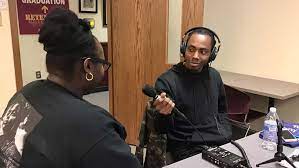One of the best professions in the world is journalism. Apart from the traditional functions of educating, informing, enlightening and entertaining the people, the other critical role of the media includes agenda-setting as well as solutions and developmental journalism, which cannot be over-emphasised. Therefore, journalists and media practitioners generally should be given quality training from time to time to enhance their productivity and always keep the media at the fore-front of driving societal change.
A recent training experience is worth sharing at FarmingFarmersFarms, which had an induction and training programme for all its editorial staff members. The event, hosted on the virtual platform, saw a vibrant line-up of resource persons, who are media experts with decades of experience; Mrs. Ugonma Cokey and Mr. Lekan Otufodunrin. The programme kicked off with a warm welcome by the Editor-in-Chief, Dr. Adewale Kupoluyi, setting the tone for an enriching experience for all, saying the event was put together to enhance the performance of staff members. The first session taken by Cokey, who delved into the exploration of the understanding of comprehensive reporting of agriculture and environmental issues.
She emphasised the need for editorial staff to ‘know something about everything’ and ensure rich reportage from all angles even in the agriculture field. She further engaged the attendees on fostering a deeper appreciation for the intersection of agriculture and environmental concerns as well as their impact on humanity at large. Cokey reiterated that in a bid to write an all angle stories, enriched with relevant information and impact, reporters/researchers would have to interact directly with all stakeholders linked to stories and always adhere to professional ethics. Similarly, Mr. Lekan Otufodunrin, during the second session, explained that writing is systemic; advocating for special writings and reports that would impact lives or proffer solutions to problems.
He made a point about diversifying reports while also utilising multimedia format to publish stories, noting that FFF, is a digital platform with the aim of empowering its readers and making them to live well and never forget to abide by the vision, mission, core values, and extant policies of the publication. Otufodunrin further charged reporters/researchers to frequently self-audit their submissions to engage diverse contents such as solutions journalism, impact journalism, multimedia, investigative, fact-checking, data and interpretative and even development journalism. The programme enabled the resource persons to share cutting-edge approaches and strategies for the editorial staff to imbibe.
One of the staff members, while reviewing the programme and thanking the speakers, commended that the engaging discussions within a short period, had opened him up to new horizons for creativity and innovation in his journalistic endeavours. Also, during the induction and training programme, the last session, which was the interactive questions and answers segment, allowed team members to actively participate, seeking clarification and deepening their understanding of how to align their deliverables with the FFF editorial community. The grand finale of the event was marked by a vote of thanks delivered on behalf of the editorial staff, by Miss. Olamide Tejuoso, whose words encapsulated the collective gratitude of the FFF family towards the speakers and resource persons.
As the editorial team absorbs the wealth of knowledge gained from this programme, FFF anticipates a new era of excellence in journalism as the editorial staff members are now armed with fresh perspectives, more passion, insights and skills to make significant contributions to FFF’s objectives and goals. The induction and training programme underscores the management’s commitment to fostering a culture of continuous learning and professional development within its ranks. With the just-concluded event, the organisation looks forward to building on this momentum, further solidifying its position as a beacon of journalistic excellence in the agriculture and environment fields.
Cokey started her media career with the print media, had a stint in television before moving to the radio station. In her over two decades in radio, she had worked as a reporter, producer, presenter and editor, and covered several beats including agriculture, environment, climate change, energy, business and technology, politics, health, and the United Nations systems. She has headed the editorial, reportorial, online, current affairs and development desks. A Fellow, Biosciences for Farming in Africa; Fellow, United Nations Framework Convention on Climate Change, Fellow, UNFCC+COM, Winner UNFCC/CDM Radio contest for African journalists; and winner, farm radio international script writing competition; first runner-up, Dame Award Best Reporter of the year 2008, among others.
Otufodunrin is a media career development specialist based in Lagos, Nigeria. With over 30 years of media industry experience, he is presently the Executive Director, Media Career Development Network, Nigeria’s foremost media mentoring and coaching organisation. He was former Managing Editor and Sunday Editor at The Nation Newspapers. He was also former Group News and Political Editor at The Punch Newspapers. Otufodunrin is a founder of Journalists for Christ and fellow of Thomson Foundation, Poynter Institute and Bloomberg Africa Media Fellowship, and currently a coach with the Nigeria Media Innovation Programme (NAMIP), to mention a few. No doubt, the lessons shared should go a long way at encouraging our news rooms to constantly engage in robust staff development activities.




